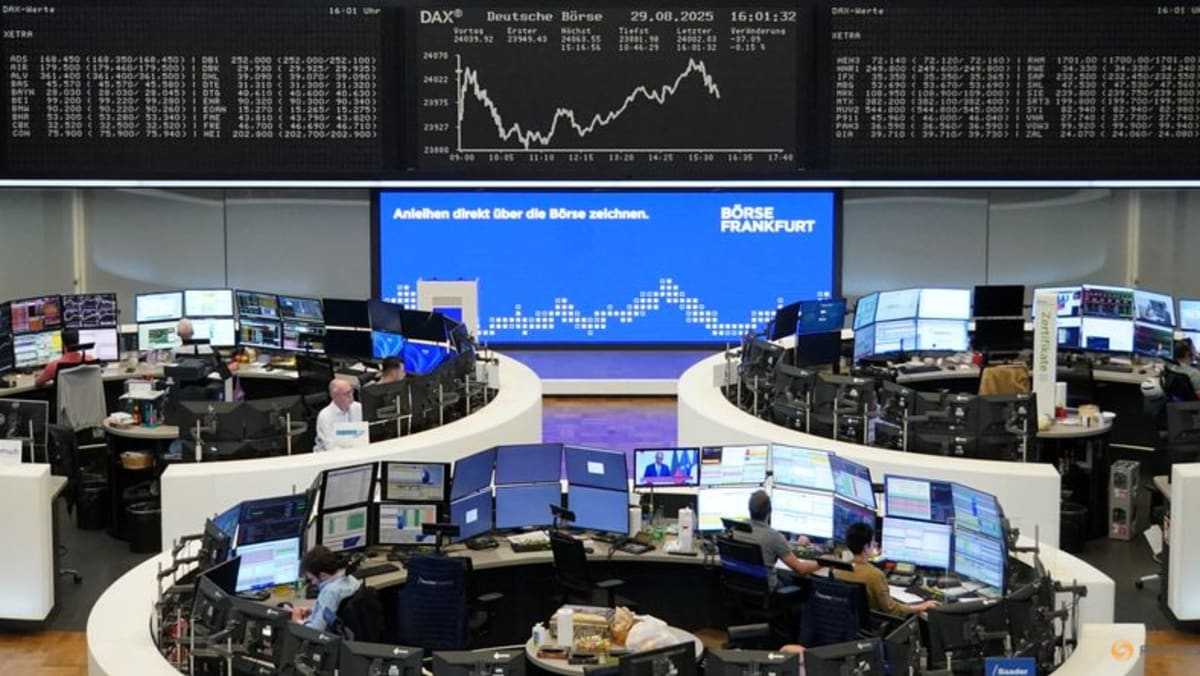LONDON/SYDNEY :A holiday on Wall Street left shares around the world free to go their own ways on Monday, with Chinese tech names surging and Europe steady, while European long-dated bonds remained under heavy pressure.
Europe’s broad STOXX 600 was last up 0.1 per cent as initial positivity on improved manufacturing data petered out. There was more excitement in Asia, where Chinese tech giant Alibaba’s Hong Kong shares rose 18 per cent after it said AI drove a surge in revenue to its cloud business. [.EU] [.SS]
U.S. share futures were flat.
The U.S. is likely to be the main focus of the rest of the week, with a raft of data there including surveys of manufacturing and services, and labour numbers culminating in the August payrolls report on Friday.
Median forecasts are for employment to have climbed by 75,000 jobs, though estimates range widely from zero to a 110,000 gain amid uncertainty caused by July’s surprisingly weak report. The jobless rate is seen ticking up to 4.3 per cent.
“The jobs market is the number one factor for the Federal Reserve’s policy path. There’s lots of talk from the Fed and from market commentators that labour markets are cooling, leading to a rate cut in September, but it’s not a clear-cut situation,” Samy Chaar, chief economist at Lombard Odier, said.
“So it’s a ‘make or break’ week.”
The prospect of lower borrowing costs has kept Wall Street near record highs, and would be timely given September has been the worst performing month of the year for the S&P 500 over the past 35 years.
U.S. tariff policy also remained a concern after a Court of Appeals ruled that many of President Donald Trump’s sweeping import levies were illegal, but left them in place until mid-October awaiting an appeal to the Supreme Court.
The White House has other means to apply sectoral levies, but it puts a question mark over trade agreements already reached or being negotiated. Talks with Japan have hit a stumbling block over rice, while negotiations with South Korea have become bogged down.
Investors will also be wary of Trump’s attacks on the independence of the Fed, with Fed Governor Lisa Cook set to file fresh arguments against her firing on Tuesday.
BOND SELLOFF
The other focus for European investors was France, where Prime Minister Francois Bayrou will kick off a series of talks with France’s political parties, seeking to stave off the collapse of his government in a confidence vote next week that opposition leaders said is bound to fail.
Markets have stabilised after selling off on the announcement of the confidence vote, but further developments could drive renewed focus on France’s embattled finances.
The gap between French and German 10-year yields widened sharply last week, but was last steadier at 78 basis points.
“We see more than even odds that the government fails the no confidence vote. It is likely to lead to a period of political uncertainty and a possibility of early elections. We retain our negative view on France and see France spreads moving towards 90bp level,” Mohit Kumar, chief European economist at Jefferies, said.
Worries about the fiscal situation in many countries around the world have been sending long-dated bond yields higher.
German 30-year yields hit a fresh 14-year high of 3.38 per cent on Monday and benchmark 10-year yields rose 3 bps to 2.76 per cent.
With Treasury markets closed for the holiday, the higher European yields drove the euro higher. The euro was last up 0.4 per cent at $1.1721. [FRX/]
In commodity markets, gold benefited from the dollar’s decline and the outlook for lower rates to rise 2.2 per cent last week. The metal added another 1.0 per cent to a four-month top of $3,481 an ounce.
Oil prices edged up on Monday as worries about rising output and the impact on demand from U.S. tariffs offset supply disruptions stemming from intensified Russia-Ukraine airstrikes and pressure from a weaker dollar.
Brent was up 0.9 per cent at $68.01 a barrel.
